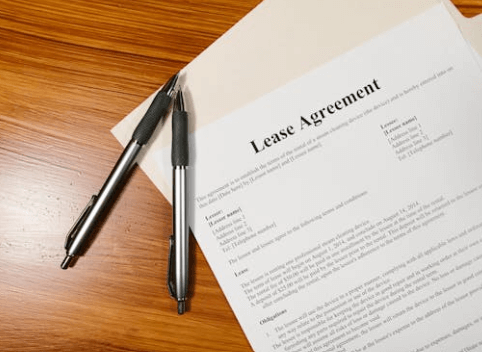Navigating the complex realm of real estate presents challenges, particularly when understanding Tenants’ Rights When Landlord Sells Property in Florida. This detailed guide aims to illuminate the pivotal aspects of Tenants’ Rights When Landlord Sells Property in Florida, ensuring you’re well-equipped with the knowledge to protect your interests. Whether you’re a long-term resident or a recent settler in the Sunshine State, comprehending these rights is vital for ensuring a seamless transition in property transactions.
Renowned real estate investors Steve Daria and Joleigh have long emphasized the importance of understanding tenants’ rights in Florida. Their expertise illuminates crucial considerations during the sale of rental property, ensuring both landlords and tenants are adequately informed.
Immediate Impacts of Property Sale on Tenants
When a landlord decides to sell property that tenants currently occupy, it can spark concerns and uncertainties for renters.
Notice Requirements
The first thing tenants often wonder is how much notice they will be given before they are required to vacate the property.
In Florida, the law does set forth specific guidelines for this situation.
Generally, month-to-month tenants must be given a 15-day notice before the end of the rental period. Longer-term tenants may receive more notice, typically up to 60 days.
Lease Agreements
The sale of the property does not result in the automatic termination of the lease for tenants who have an active lease agreement in place.
The terms of the existing lease legally bind the new owner until it expires.
However, there are some exceptions, such as if the new owner plans to use the property for their residence or if the lease includes a clause allowing for termination upon sale.

Showings and Viewing the Property
During sales, the landlord or agent might need to show the property. Tenants’ rights when landlord sells property in Florida are respected here, too.
In Florida, landlords must provide reasonable notice (typically 12 hours) before showing the property and can only do so at reasonable times.
Get An Offer Today, Sell In A Matter Of Days
Leases, New Owners, and Your Future in the Property
Understanding what happens to your lease after a property sale is paramount.
Lease Termination
If the lease includes a termination clause for a sale, the tenant must be informed according to the terms stated in the lease.
Generally, this involves providing written notice within a certain timeframe, such as 30 or 60 days before the sale.
The tenant may also have the option to purchase the property before it is put on the market.

New Lease Terms
Once the property is sold, the new owner can create a new lease agreement with existing tenants.
However, they can only change the lease terms with the tenant’s consent.
This means that if the new owner wants to increase rent, add additional fees, or make any other changes, they will need to negotiate with the tenant.
Security Deposits
The security deposit typically transfers to the new owner, who is then responsible for its return at the end of the tenancy, according to Florida laws governing security deposits.
Legal Protections for Tenants During a Property Sale
Florida law is designed to protect tenants’ rights in the event of a property sale.
Discrimination Prohibitions
Landlords should refrain from discriminatory practices against tenants based on race, color, national origin, gender, disability, familial status, or religion, even during property sales.
Retaliation Protections
Landlords are prohibited from retaliating against tenants by raising the rent or evicting them because they exercised their legal rights, such as asking for necessary repairs or withholding rent due to the landlord’s failure to maintain the property.
Moving Out and Security Deposit Settlement
When you reach the end of your tenancy, there are essential steps to ensure your move-out process is smooth and your security deposit is handled correctly.
Move-Out Inspections
Request a move-out inspection with your landlord.
Although the state of Florida does not require a move-out inspection, it’s a good practice to document the condition of the property when you leave.
Security Deposit Return
The landlord must promptly refund your security deposit within 15 to 60 days after you move out of the property, depending on the circumstances of your departure.
Final Invoices
Landlords are required to furnish a detailed breakdown of deductions from the security deposit, accompanied by relevant invoices and receipts for any services rendered.
Additional Considerations for Tenants’ Rights When Landlord Sells Property in Florida
In addition to the above, there are some less common but still important considerations for tenants and landlord responsibilities in Florida.
Terms and Conditions for Returning Security Deposits
If a landlord has deducted from your security deposit, they must provide evidence of the damages or unpaid rent.
Eviction After Property Sale
It’s rare, but an eviction could occur if the new owner has legal grounds for eviction according to Florida’s landlord-tenant laws.
Rights of Mobile Home and Park Tenants
Tenants in a mobile home park or similar community have specific rights, including a right-of-first-refusal opportunity to buy the property if it’s to be sold.
Conclusion
When a landlord sells a property, it can create a climate of uncertainty and concerns for tenants. However, armed with the knowledge of your rights under Florida law, you can confidently approach the situation. Remember that staying informed and having an understanding of the legal protections that exist for tenants is your best defense. If you are facing a property sale and unsure of your rights, feel free to seek legal counsel or advice from local tenant advocacy organizations. Your home is more than just a place to live — it’s a symbol of security and a space where you have the right to peaceful enjoyment. Be empowered by the law, and ensure that your voice is heard throughout the process.
**NOTICE: Please note that the content presented in this post is intended solely for informational and educational purposes. It should not be construed as legal or financial advice or relied upon as a replacement for consultation with a qualified attorney or CPA. For specific guidance on legal or financial matters, readers are encouraged to seek professional assistance from an attorney, CPA, or other appropriate professional regarding the subject matter.

